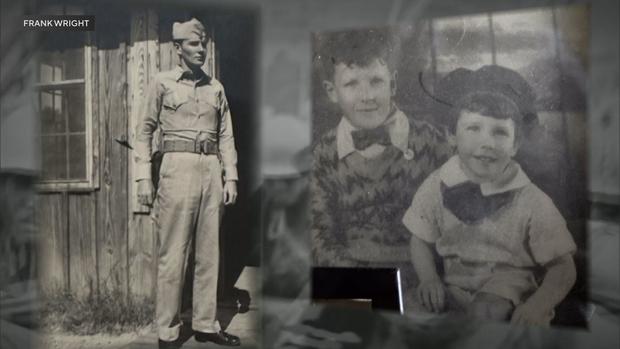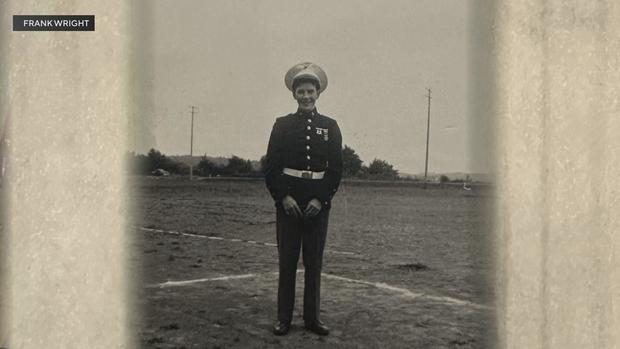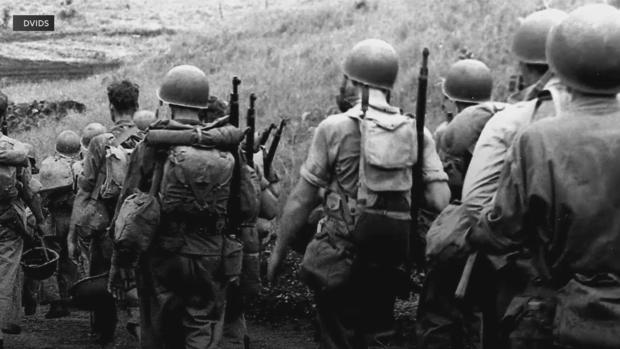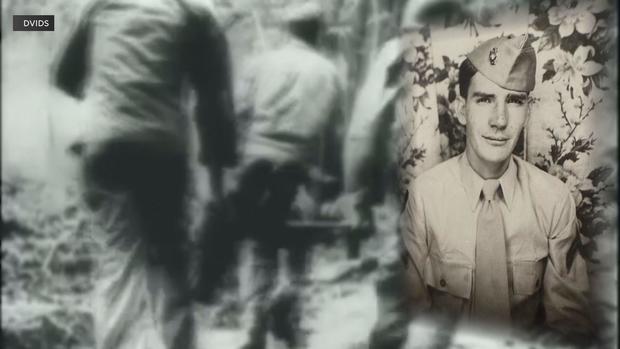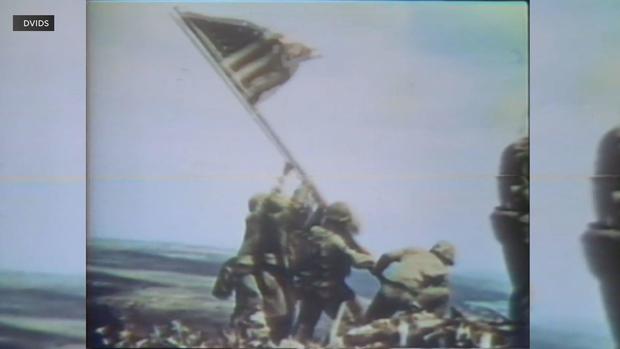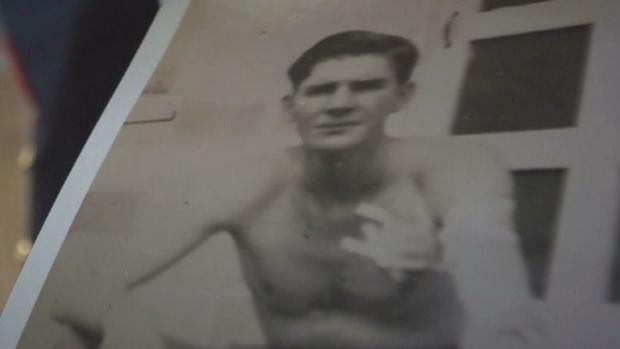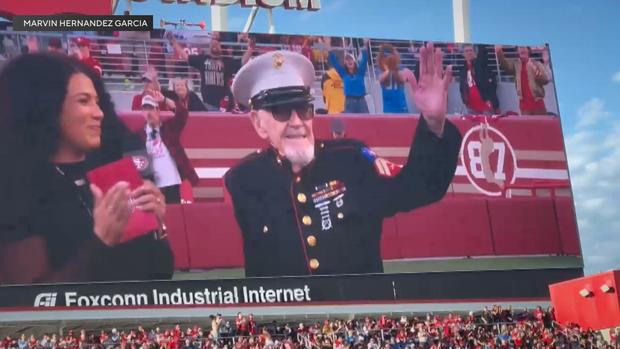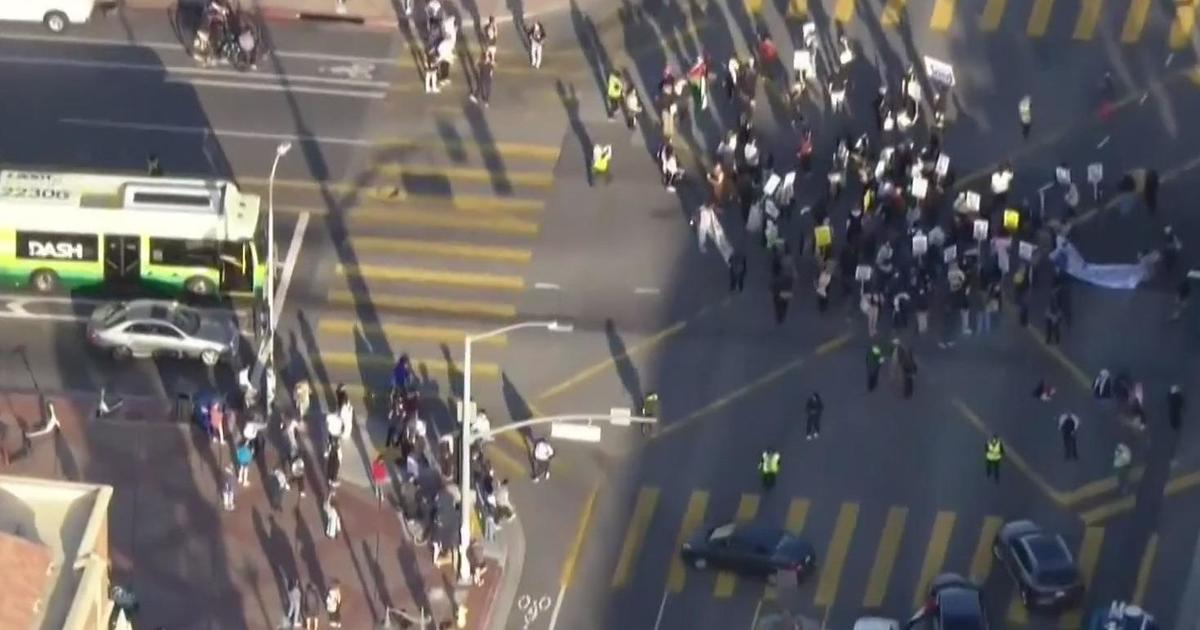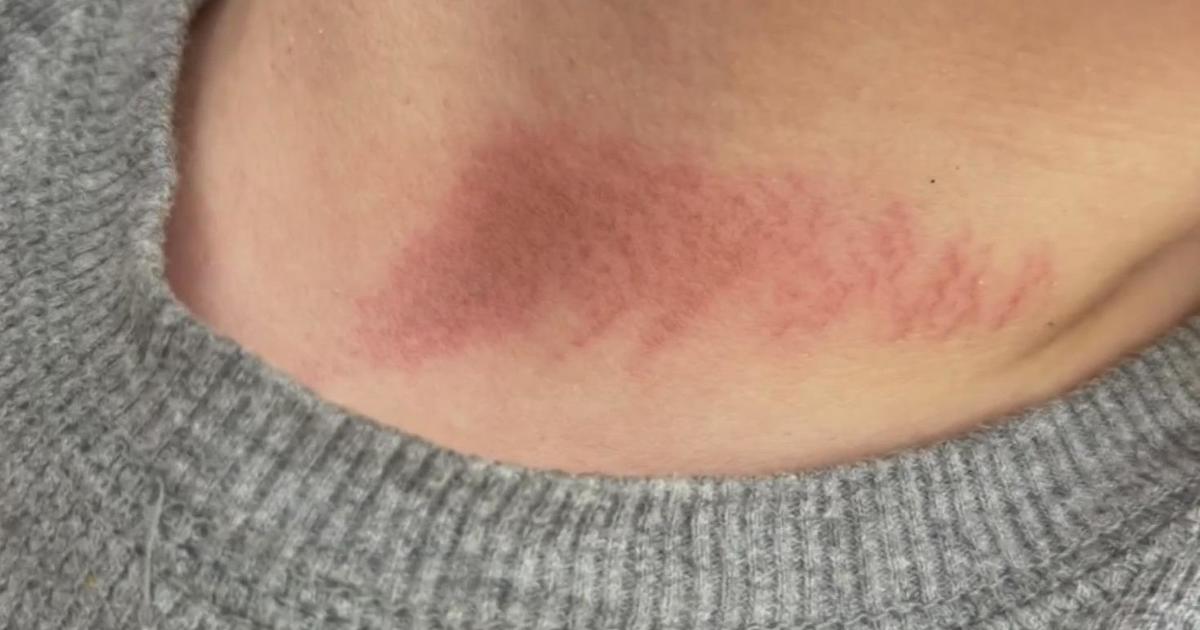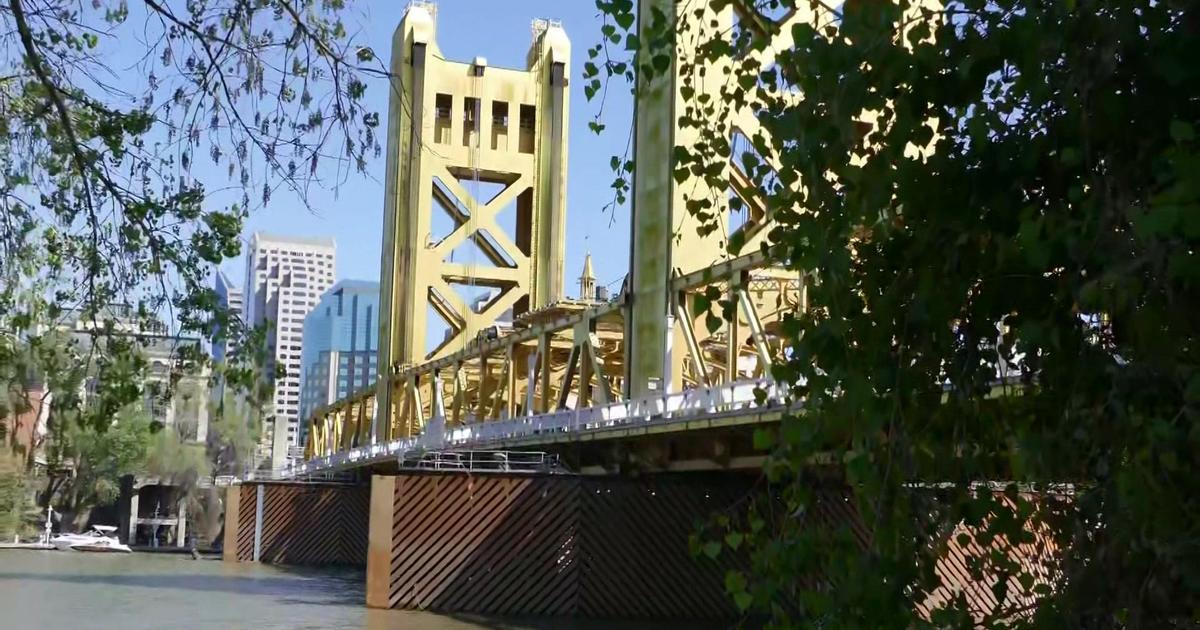Northern California veteran among the last living WWII Marine Raiders, fought in historic Pacific battles
LODI -- Corporal Frank S. Wright, 98, will proudly tell you that he quit high school in 1942 to join the military during World War II. The Lodi veteran said he chose the Marines for one simple reason.
"They had the prettiest uniform," Wright said with a laugh.
Like the story of so many, Wright's service was inspired by one monumental moment in American history: the bombing of Pearl Harbor on December 7, 1941.
Born in Arkadelphia, Arkansas, the then-16-year-old decided one month after the attack that it was his duty to enlist and serve his country.
"It was January 21. Right after Roosevelt asked the Congress for a state of war," Wright said.
He was inspired by the words of President Franklin D. Roosevelt, calling American countrymen and women to fight back against the Japanese invasion. Congress would declare war on Japan, signifying the United States' entrance into its second World War.
However, Wright quickly hit a bump in the road when he went to the enlistment office in small-town Arkansas.
Grab the bananas
When Wright went to enlist, he was immediately told no.
"They said I was too young and too skinny. You had to weigh, I think, 130 pounds," he said.
He was only 16 at the time and weighed less than the benchmark soaking wet.
However, Wright would not let what he considered to be two small things stop him from joining the war.
"I went home and I got me about five pounds of bananas and put them in my pockets, my jacket. I got enough so I could pass the weight part," Wright said.
From there, he successfully lied about his age. At that point, Wright had successfully worked the system.
To his surprise though, he would not be shipped off for war soon. The Arkansas enlistment office could not take him right away because they did not have enough men for transport out to California.
Wright, ready and eager to serve, would have to wait patiently for others to enlist.
Once there were five men ready to be Marines, Wright left with the transport from Arkansas to California.
Training the troops
On January 24, 1942, Wright first reported to boot camp at the 12th recruit battalion, Marine Corps Recruit Depot, Platoon 150 in San Diego, California.
"They trained me. They trained me good," Wright said.
Wright would train in San Diego for about eight weeks before heading up the coast by train to his first duty station in Astoria, Oregon.
He would serve on guard duty for multiple missions, including when he says Japanese forces snuck a submarine into the Columbia River behind fishing boats and shelled Fort Stevens at the mouth of the river.
Wright was still just 16 years old when a call for recruits rang through his station.
The Marine Corps was searching for volunteers to join the 4th Marine Raiders. Every Marine on the base was interviewed, Wright recalled, and he said they must have liked his attitude and answers.
"They asked me, 'Why did I want to join up?' I said, 'I wanted to fight,' " Wright said.
After President Roosevelt's call for war inspired Wright to enlist, you can imagine his surprise when he learned who would lead his new mission.
"It was his son that would be my commanding officer," Wright said.
James Roosevelt, FDR's eldest son, would lead the special forces. Wright described him as a good man who never gave an order he wouldn't do himself.
Only about six people joined Wright in leaving the base camp with the Raiders.
War in the West
Wright boarded ships and headed West with the Raiders to wage war in the Pacific theater of World War II.
Their target was defending the string of Solomon Islands that was overtaken by Japanese forces after the bombing of Pearl Harbor.
The mission of the Raiders was to "spearhead larger amphibious landings on beaches thought to be inaccessible, conduct raids requiring surprise and high speed, and operate as guerilla units for lengthy periods behind enemy lines," according to the Marine Corps University.
The Marine Raiders are said to be the first U.S. special forces to form and fight in World War II.
"Now, Guadalcanal was the first response at the time for the Pacific. That was the start," Wright said.
The Guadalcanal campaign would go down in history as the first major land offensive by Allied forces against the Empire of Japan.
"The 4th Raiders were transferred over to Guadalcanal and were stationed around Henderson Field. That was the fighting point, to get to Henderson Field, so we'd have a place to base our fighters from," said Wright.
The Raiders camped and trained for intense jungle fighting as the American forces set their sights on establishing military bases across the South Pacific.
A rebel with a cause
Wright said he faced yet another setback that nearly sidelined him from any fighting in the Solomon Islands.
He and others, including Colonel James Roosevelt, caught malaria and landed themselves in field hospitals, badly sick and shaking. Wright said Roosevelt was sent back to the United States and he stayed put for treatment.
The Raiders were about to leave Guadalcanal to move on and invade New Georgia. Wright said he could not stand the thought of sitting in a hospital while his unit fought.
"I didn't want to be left behind," he said. "So, I left."
He broke out of the field hospitals without permission and rejoined the ranks.
"I was a little rebel!" Wright said while laughing at the memory.
The Raiders would move onward, fighting their way through the Solomon Islands while dodging booby traps, banzai charges and surprise attacks by the Japanese forces.
In 1944, the Raiders were disbanded and absorbed into regular infantry units.
"From then on, everything we did was on a much larger scale," said Wright, who joined the third division of the Marines.
Occupation to liberation
"My next action that the third division took was Guam," Wright said.
In 1945, the Raiders went to recapture the island of Guam, a U.S. territory, from the Japanese forces that held it since 1941.
"That was our first thing to do, to liberate the people out of there, the natives and the civilians that were on the island before we got there," Wright said.
Wright's time on Guam was defined by intense Japanese retaliation from the day they first landed on its beaches and had to bed down in the sand under attack.
They would fight through multiple large banzai charges.
"They had the largest tank battle of the Pacific War right there in front of us," Wright said. "The Japanese sent in the infantry they had, and we started fighting them hand-to-hand. With our bayonets and anything else we could get a hold of. There was quite a melee at that time."
It was there Wright was badly wounded, stabbed in the stomach with a bayonet by a Japanese soldier who fell onto Wright as he tumbled back into his foxhole.
Wright would survive, to the surprise of his men.
"They thought I was dead. I was covered in blood," Wright said.
The Japanese forces would retreat and the Americans would charge forward, further into the island, encountering Japanese pillboxes and losing even more men.
Before the fighting was done, Wright had to have his stomach sewn up in the field from the deep stab wound. He was told he could go back to headquarters but refused, saying he could walk and, therefore, could keep going.
After the battle was over, Guam would go from occupation to liberation. Atrocities forced on its people under the overrule of the Empire of Japan included mass killings and prison concentration camps.
The island and its people were finally free, and the American forces began to train there for the next eight months for more intense jungle fighting.
The mystery of lost loot
Few laugh-worthy stories come from war, but Wright was eager to share one.
As the island of Guam settled amid the Americans recapturing it, Wright said he and a few men stumbled upon a celebratory find: two cases of untouched sake, or Japanese beer.
They could not take it with them as the troops were still working to secure the island. So, instead, they buried it. They were eager to come back and crack open the cases when the time was right.
After months of training that would follow, it was one particular weekend off that Wright and his men remembered their hidden treasure.
They went back to the spot where they buried it and found instead a base post office built in its place.
"So, we left and said a few choice words of disappointment," Wright said, laughing.
After the war, Wright would read published letters written home by soldiers to their families and came across one of particular interest.
"One guy wrote a letter to his wife and they published it. They bragged about finding two cases of sake," he said. "So they got the sake and they had the party."
It was the mystery of the long-lost sake solved. Turns out, it was never under the post office.
"We just forgot where we buried it," Wright said, shaking his head.
On to Japanese soil
After months of intense training on Guam, the Marines would set sail in February 1945 for the first time to true Japanese soil: the island of Iwo Jima.
Wright's third division of the 21st Marines was floating reserve off the island's shores waiting to land, following the fifth and fourth divisions' attacks on the Yellow beach as reinforcement.
"They held us up, saying, 'No, we can't use you right now. The beach is too crowded with dead people and the equipment,' " Wright said.
Wright and the men got back aboard the USS Jackson from their landing ship tanks (LSTs) in the choppy waters. Everyone was tired and sick from riding the surf in wait for hours.
The third division would get the order to storm the beach the following day.
"The 21st landed to give support to the fourth division. The fourth was still down on the lower part of Mt. Suribachi. Their objective was to clear out airfield one and head over to airfield two," Wright said.
Fighting through volcanic sand and a surprising number of Japanese soldiers lying in wait, the Battle of Iwo Jima would go down as one of the bloodiest of World War II. It is estimated that 70,000 U.S. Marines and 18,000 Japanese soldiers took part in the battle.
Wright and his men fought onward to clear airfields across the island, and their unit was brutally attacked multiple times over the next days.
As they moved, Wright was hit hard in the head by something and knocked unconscious, believed to be dead. His men would go onward and Wright was eventually picked up by the fourth division when he regained consciousness.
Wright was also caught in the crosshair of machine gun fire during the fighting and was shot in the chest and arm, but survived.
"All of a sudden, we heard a lot of commotion out in the ship harbor, and they were honking and blowing their horns and all that stuff," he said.
Out of calamity rose a timeless symbol. Wright witnessed it firsthand.
"I borrowed the binoculars of my scout and looked up and found what they were doing. They were raising the flag on Mt. Suribachi," Wright said.
"What was it like," reporter Ashley Sharp asked, "to watch that monumental moment?"
"Oh, it was so good. It was so, so good. You couldn't believe it," Wright responded. "I cried. I've cried ever since when I talk about it."
The battle was not yet won, but the flag flying high forged an American will to keep fighting on Iwo Jima for another month.
After the war
World War II was officially over in September 1945 after the surrender of both Germany and Japan.
Wright spent the last six months of his enlistment as a Marine Drill Instructor, training new recruits. He was then discharged in 1946.
He was just twenty years old and had witnessed some of the worst of humanity in his four years in the Marine Corps.
"To put on paper what you saw and what you did, you just can't put it in words," he said.
Somehow, Wright found a way more than 70 years after the war.
In 2019, he wrote and published a personal account of his stories of war and the silent battles with PTSD to come after.
The book, titled "Battles in the Pacific: World War II, My Personal War Causing PTSD" can be purchased online from major retailers.
Wright, at age 98, is in the process now of writing a second book.
"In my opinion, you should talk about it. In my opinion, you should write about it, get it out of your head," Wright said.
He did not speak about his experiences in the war until his first interview in the 1950s when he cried recounting all he went through. He recognized he should seek professional help to treat his PTSD.
Wright is the recipient of a Purple Heart with two stars, the Presidential Unit Citation with two stars, a Navy Unit Commendation, the American Campaign Medal, the Asiatic-Pacific Campaign with three service stars, the Fleet Marine Force with four stars, the Marine Corps Expedition Medal, a Combat Action Ribbon with four stars, the Victory Medal and a Good Conduct Medal.
He lives in Lodi, California, where he is a member of the Stockton Marine Corps Club and the American Legion Karl Ross Post 16.
The honor of a lifetime
To honor his incredible service, Wright was chosen by the San Francisco 49ers as their "Frontline Hero of the Game" at the NFC Championship Game, when the team would beat the Detroit Lions and punch their ticket to Superbowl LVIII.
"I just almost jumped out of my chair," said Wright, remembering when he first heard the news he was going to the game.
All expenses paid, he got to not only watch his first game in person at Levi's Stadium but also enjoy the sideline before the game and be honored on the field during the first quarter.
"To see all that going on and be close to them, it is just really amazing. Something I will remember all my life," Wright said.
The moment his team hailed him a hero is one Wright said he will never forget, met with roaring applause from more than 70,000 fans.
Wright has been a 49ers fan since the team was first formed in 1946. That's nearly eight decades faithful to the Bay.
"I want them to know that I am supporting them and this old man is happy to be involved with them," Wright said.
It was the thank you of a lifetime for a lifelong Niners fan and lifelong Marine.
